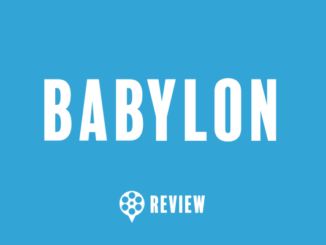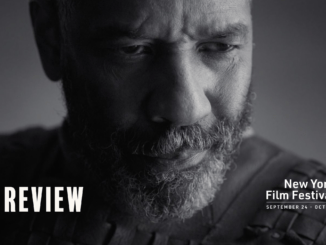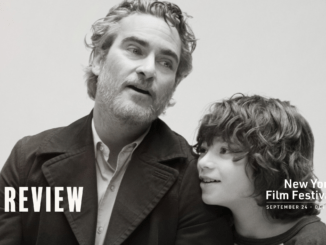I would argue that the horror audience is probably one of the most divisive audiences in cinema. A strong case can be made for comedy as well since what one considers funny is also subjective but a lot of times horror claims the prize. Almost every year there is a horror film that gets a lot of pre-release buzz from critics lauding it as “the scariest film in years” and this narrative permeates throughout the film’s marketing campaign as its used to entice moviegoers to make moves to the theater.
Hype, in general, can derail any project because it sets up near impossible expectations. There are bound to be naysayers who don’t think the project is all its cracked up to be and soon a visceral chain of bad word of mouth spreads through social media and it practically kneecaps a film’s overall performance. This can happen as early as the end of the opening night. Thanks to a polling system such as CinemaScore, a film can be given a grade from a range of A to F and by the time media outlets are reporting Friday numbers on Saturday, that grade from CinemaScore is clearly stated somewhere in the piece.
Hereditary, a new psychological horror film from first-time director Ari Aster, is the latest victim of the CinemaScore stigma. The film currently stands at a 93% on Rotten Tomatoes and being branded by many critics as a modern horror masterpiece but casual moviegoers aren’t feeling the same way. After its opening night last Friday, the film received a rather dismal “D+” CinemaScore which is another prime example of the disconnect between critics and audiences. A24, who is distributing Hereditary, had a similar problem with their film The Witch. That film was lauded by critics with a 91% fresh rating on Rotten Tomatoes but it was greeted with a subpar “C-” CinemaScore from moviegoers. A24 was given a similar blow after the release of It Comes At Night which scored a fresh rating of 88% on Rotten Tomatoes but a paltry “D” CinemaScore.
I try not to criticize one’s reaction to certain films. We all have different tastes and honestly, motion pictures should try to appeal to the casual moviegoer. Most people seeing movies aren’t film critics and most are seeking an escape. If a film requires a bit more attention to detail and less of a typical visceral experience, I can see how they would be a turn-off. To suggest that a moviegoer isn’t “sophisticated” enough to understand a film’s various nuances can be mildly insulting. I know this from personal experience because I’ve been that “cinephile” who gets on some of his friends for not getting certain movies and it has sometimes been met with a response that suggests I’m being a tad pretentious. Their thought is that they’re not movie critics, they’re just regular folks seeing a movie for entertainment. They’re not trying to dissect every little theme in a film. They don’t want an open ending that leaves things open to interpretation. They want a clear-cut experience from beginning to end because let’s face it, they’re paying upwards of $16.75 a movie ticket to be entertained.
Despite understanding this sensibility, I have to say that in the case of Hereditary that the casual moviegoer got this wrong. I can say this with the utmost conviction BUT I also understand why it’s not clicking with everyone who is seeing it. If you’re looking for the next Exorcist (one critic proudly exclaimed that the film is this generation’s Exorcist in his blurb on the film’s promotional movie poster) you will be disappointed. Hereditary doesn’t offer the expected thrills that one is probably looking for when hearing that comparison but it is a solid psychological domestic horror film that gains its frights from expert camerawork from Pawel Pogorzelski, an instantly iconic score from Colin Stetson, fully committed performances from its cast and a slow burn approach to the growing tension throughout the film. This won’t appeal to everyone, but it damn sure appealed to me.
The movie focuses on a strange and insular family, the Grahams. At the start of the proceedings, Annie Graham (Toni Collette) is preparing to bury her mother. Her husband, Steve (Gabriel Byrne), and teenage son, Peter (Alex Wolff), are grave, but neither seems especially upset. The only one broken up about Grandma’s death is Charlie (Milly Shapiro), Peter’s 13-year old sister. Those hoping for a whiff of ghosts or hauntings will have to wait a while. In fact, nothing especially odd happens for about the first hour as the movie toys with our expectations load up on claustrophobia and eeriness, and gives us time to get to know the characters as they endure yet another tragedy. From that tragedy, things pick up quite a bit and what results is an attack on the psyche that stays with you long after the movie is over. You just have to be patient enough to get there.
Hereditary plays more like a psychological drama with elements of horror sprinkled in. I was reminded of The Babadook, which dealt more with familial conditions rather than outright horror, while I was watching Hereditary. There share a bit of the same DNA and oddly enough seems to share the same polarizing response from those who have seen it. Horror doesn’t have to be all jump scares and viscera, sometimes a more psychological approach is more frightening and that is certainly the case here. The growing tensions in the family have their own brand of horrors and the audience feels uneasy as we wait to see how they all pan out. There is a sense that something isn’t quite right with the Grahams and that alone makes for an unsettling experience.
The atmosphere is key in any horror film and director Ari Aster, with camerawork assistance from Pawel Pogorzelski, drenches his film with a palpable dose of it. They make even quiet moments visually interesting and when the horror elements of the film kick in, they do a superb job of elevating the pulse a bit. For me, the film was never particularly scary, but they do a good job of making you feel every moment and making every frame of the film count. There were a few background moments that caught me by surprise because my focus was on one thing and suddenly my other eye would catch something in the foreground that would actually give me a bit of a chill. It’s expert work from all involved and I believe elements of how the film was shot and constructed will be analyzed by horror aficionados.
The score by Colin Stetson is a modern horror masterpiece. If I were to compare it to a score from recent horror films, I would have to say it stands alongside the score from It Follows as an effective use of music in a modern horror film. The score wraps you in the film’s world and it actually elevates many scenes of escalating tension. There are also times when the score is subtle and not necessarily used to add pure impact to a scene but it’s present just enough to make you feel uneasy. In the long run, I think it will be appreciated as one of the best scores in the genre.
The performances are top-notch across the board but it’s Toni Collette who commands every scene she’s in. She’s one of those actresses who can play just about anything and she convinces us of that once again with a fully committed performance. At times her turn is completely gut-wrenching (her response to a family tragedy hit me like a punch to the stomach) and at times she even lightens the mood with her appropriate comedic response to some of the film’s events. There is a dinner scene late in the film that allows her to combine almost all of these elements and it’s probably my favorite scene of the film because it’s instantly uncomfortable but honest in its portrayal of family discourse.
Adequate support is provided by Alex Wolff and Gabriel Byrne. Wolff has to run a similar emotional gauntlet that Collette is one and he proves to be up to the task. I especially responded to his more subtle and quiet moments as well, with a scene of how he handles a particular event being eerily effective. Gabriel Byrne has to play things a bit more subdued than his co-stars because his character is the most reasonable of the bunch. He knows something is wrong in his family but he approaches it from a more psychological and human angle. His character is the one that speaks for the audience and he handles that role well.
I won’t reveal it here, but I feel like the ending, particularly the last 10 minutes, will be a bone of contention between those who like the film and those who don’t. I actually took a few days to digest the closing moments and by the end of it, I felt like I wasn’t cheated and that despite how off the wall it gets, all of it works. It does break away a bit from the more grounded nature of the story but it’s so well crafted that it can be forgiven for breaking away from reality a bit.
Hereditary had A24’s biggest opening weekend with $13.5 million and, at least for one weekend, it looks like it was able to overcome its “D+” CinemaScore. The real test will be how much it falters in weekend two but even if it completely collapses, I think Hereditary will find its true life and success down the road when it’s proclaimed as a masterful work of horror that isn’t afraid to slowly unspool its surprises. Patience is a virtue and in the case of this film it’s a necessity but it’s all worth it in the end.







